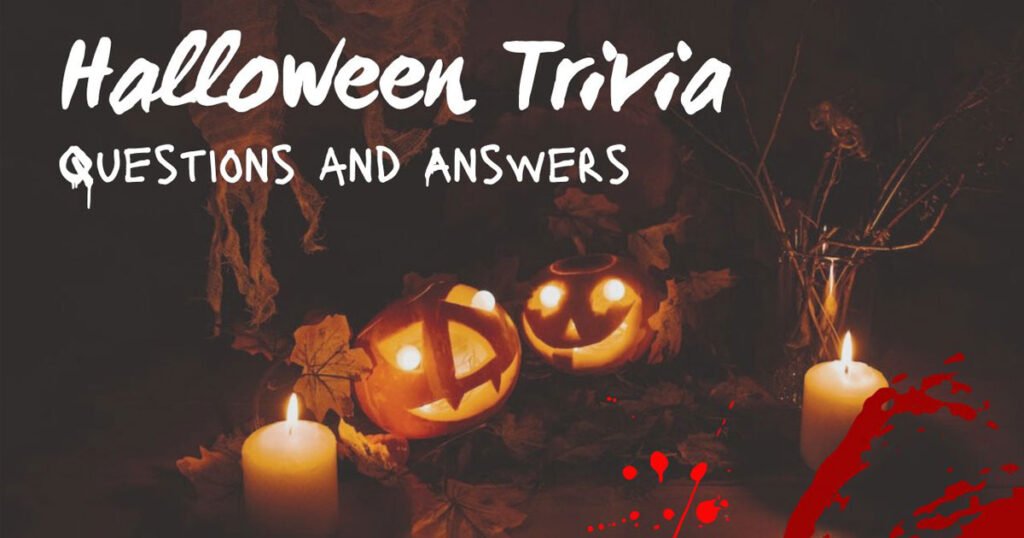Martin Luther King Jr. (MLK) was a pivotal leader in the American civil rights movement, known for his nonviolent activism and his famous “I Have a Dream” speech.
Martin Luther King Jr., often referred to simply as MLK, was more than just a historical figure — he was a transformative leader whose legacy continues to inspire people across the globe. Learning about his life, achievements, and values through trivia is not only educational but also a way to honor his enduring impact on society.
This detailed guide brings you well-researched and thoughtfully curated MLK trivia questions and answers, perfect for classrooms, trivia nights, or anyone who wants to dive deeper into Dr. King’s remarkable life.
Who Was Martin Luther King Jr.?
Martin Luther King Jr. was a Baptist minister, a social activist, and one of the most influential leaders of the American civil rights movement in the 1950s and 1960s. Born on January 15, 1929, in Atlanta, Georgia, he dedicated his life to fighting racial inequality through nonviolent resistance.
He is best remembered for his pivotal role in ending legal segregation and for his eloquent speeches that called for justice, peace, and equality. His leadership led to major legal and social reforms in the United States, including the Civil Rights Act of 1964 and the Voting Rights Act of 1965.
MLK Trivia Questions and Answers
Here’s a set of 101 Martin Luther King Jr. trivia questions and answers, organized into 10 categories with 10 questions each, plus a bonus category to make 101 in total. Each Q&A follows the requested format with spacing.
Early Life & Education
Q: What year was Martin Luther King Jr. born?
A: 1929
Q: In which city was Martin Luther King Jr. born?
A: Atlanta, Georgia
Q: What was Martin Luther King Jr.’s birth name?
A: Michael King Jr.
Q: Who was Martin Luther King Jr.’s father?
A: Martin Luther King Sr.
Q: Which college did Martin Luther King Jr. attend at the age of 15?
A: Morehouse College
Q: What degree did Martin Luther King Jr. earn from Crozer Theological Seminary?
A: Bachelor of Divinity
Q: Where did Martin Luther King Jr. earn his Ph.D.?
A: Boston University
Q: What subject did Martin Luther King Jr. earn his doctorate in?
A: Systematic Theology
Q: What was the name of Martin Luther King Jr.’s mother?
A: Alberta Williams King
Q: At what age did Martin Luther King Jr. enter college?
A: 15
Civil Rights Movement
Q: What event is considered Martin Luther King Jr.’s rise to prominence in the Civil Rights Movement?
A: Montgomery Bus Boycott
Q: In what year did the Montgomery Bus Boycott begin?
A: 1955
Q: What law was the Montgomery Bus Boycott protesting?
A: Segregation on public buses
Q: Who inspired the Montgomery Bus Boycott by refusing to give up her seat?
A: Rosa Parks
Q: What organization did MLK co-found in 1957?
A: Southern Christian Leadership Conference (SCLC)
Q: What was the purpose of the SCLC?
A: To coordinate nonviolent civil rights protests
Q: What city was the focus of MLK’s campaign in 1963 for desegregation and civil rights?
A: Birmingham, Alabama
Q: What was the name of the letter MLK wrote while jailed in Birmingham?
A: Letter from Birmingham Jail
Q: What famous action did MLK help organize in Washington, D.C. in 1963?
A: The March on Washington
Q: What major legislation followed MLK’s activism in the Civil Rights Movement?
A: The Civil Rights Act of 1964
“I Have a Dream” Speech
Q: In what year did MLK deliver the “I Have a Dream” speech?
A: 1963
Q: Where was the “I Have a Dream” speech delivered?
A: Lincoln Memorial, Washington, D.C.
Q: What was the event called where MLK gave his “I Have a Dream” speech?
A: The March on Washington for Jobs and Freedom
Q: Approximately how many people attended the March on Washington?
A: About 250,000
Q: What date did MLK deliver his famous speech?
A: August 28, 1963
Q: Which U.S. President was in office during the “I Have a Dream” speech?
A: John F. Kennedy
Q: What biblical references did MLK use in his speech?
A: References to Isaiah and Amos
Q: What founding U.S. document did MLK reference in his speech?
A: The Declaration of Independence
Q: What is the famous repeated phrase in the speech?
A: “I have a dream”
Q: What does MLK dream about in the speech?
A: Racial equality and justice for all
Awards and Honors
Q: What prestigious award did Martin Luther King Jr. win in 1964?
A: Nobel Peace Prize
Q: At what age did MLK receive the Nobel Peace Prize?
A: 35
Q: What distinction did MLK earn by winning the Nobel Peace Prize?
A: Youngest Nobel Peace Prize winner at the time
Q: What did MLK do with his Nobel Prize money?
A: Donated it to the civil rights movement
Q: What U.S. federal holiday honors Martin Luther King Jr.?
A: Martin Luther King Jr. Day
Q: In what year was Martin Luther King Jr. Day first observed?
A: 1986
Q: Which president signed the holiday into law?
A: Ronald Reagan
Q: What honor was awarded posthumously to MLK in 2004?
A: Congressional Gold Medal
Q: In which year did MLK receive the Presidential Medal of Freedom posthumously?
A: 1977
Q: Who awarded MLK the Presidential Medal of Freedom posthumously?
A: President Jimmy Carter
Family & Personal Life
Q: Who was Martin Luther King Jr.’s wife?
A: Coretta Scott King
Q: How many children did MLK have?
A: Four
Q: What was the name of Martin Luther King Jr.’s eldest child?
A: Yolanda King
Q: What was Martin Luther King Jr.’s profession besides activism?
A: Baptist minister
Q: What was MLK’s favorite hymn?
A: “Take My Hand, Precious Lord”
Q: In which city did MLK pastor Dexter Avenue Baptist Church?
A: Montgomery, Alabama
Q: What was MLK’s favorite food?
A: Fried chicken
Q: Which musical instrument did MLK play as a child?
A: Piano
Q: What sport did MLK enjoy playing in his youth?
A: Baseball
Q: Who continued MLK’s legacy after his death?
A: Coretta Scott King and their children
Assassination
Q: In what year was Martin Luther King Jr. assassinated?
A: 1968
Q: On what date was MLK assassinated?
A: April 4, 1968
Q: Where was Martin Luther King Jr. assassinated?
A: Memphis, Tennessee
Q: What was the name of the motel where MLK was killed?
A: Lorraine Motel
Q: What was MLK in Memphis to support?
A: A sanitation workers’ strike
Q: Who was arrested for the assassination of MLK?
A: James Earl Ray
Q: What building did the assassin fire from?
A: A boarding house across from the motel
Q: How old was MLK when he died?
A: 39
Q: Where is MLK buried?
A: Atlanta, Georgia, at the Martin Luther King Jr. National Historical Park
Q: What happened to the Lorraine Motel after the assassination?
A: It became the National Civil Rights Museum
Legacy and Influence
Q: What memorial honors MLK in Washington, D.C.?
A: Martin Luther King Jr. Memorial
Q: When was the MLK Memorial in D.C. dedicated?
A: 2011
Q: What U.S. state was the last to officially recognize MLK Day?
A: South Carolina
Q: What movement was directly inspired by MLK’s nonviolence?
A: The anti-apartheid movement in South Africa
Q: What famous South African leader praised MLK’s work?
A: Nelson Mandela
Q: Which global figure compared his mission to that of MLK’s?
A: Mahatma Gandhi
Q: How is MLK remembered in over 100 countries?
A: Through schools, streets, and memorials named after him
Q: What is MLK’s philosophy of social change called?
A: Nonviolent resistance
Q: What national park is named in MLK’s honor?
A: Martin Luther King Jr. National Historical Park
Q: What famous American said MLK “taught us that love is stronger than hate”?
A: Barack Obama
Quotes and Writings
Q: Finish the quote: “Injustice anywhere is a threat to…”
A: “…justice everywhere.”
Q: What essay did MLK write in jail in 1963?
A: Letter from Birmingham Jail
Q: Finish the quote: “The arc of the moral universe is long, but…”
A: “…it bends toward justice.”
Q: What does MLK say about hate in his speeches?
A: “Hate cannot drive out hate, only love can do that.”
Q: What book did MLK write about the Montgomery Bus Boycott?
A: Stride Toward Freedom
Q: Which speech includes the line “Free at last! Free at last! Thank God Almighty…”?
A: “I Have a Dream”
Q: What does MLK say about silence?
A: “Our lives begin to end the day we become silent about things that matter.”
Q: What was MLK’s final book titled?
A: Where Do We Go from Here: Chaos or Community?
Q: What is MLK’s famous quote about darkness?
A: “Darkness cannot drive out darkness; only light can do that.”
Q: What is MLK’s view on service?
A: “Everybody can be great because everybody can serve.”
Protests and Marches
Q: What was the name of the 1965 protest march from Selma to Montgomery?
A: The Selma to Montgomery March
Q: What was the purpose of the Selma marches?
A: Voting rights for African Americans
Q: What happened on “Bloody Sunday” during the Selma march?
A: Marchers were violently attacked by police
Q: What bridge did the Selma marchers cross?
A: Edmund Pettus Bridge
Q: What act was passed as a result of the Selma march?
A: The Voting Rights Act of 1965
Q: What city did MLK target with his “Poor People’s Campaign”?
A: Washington, D.C.
Q: What was the focus of the Poor People’s Campaign?
A: Economic justice
Q: Which city was MLK’s last major campaign before his death?
A: Memphis, Tennessee
Q: What was the Chicago Freedom Movement about?
A: Housing and economic discrimination
Q: Which campaign was known for images of children facing police dogs and fire hoses?
A: Birmingham Campaign
Speeches and Sermons
Q: What is the name of MLK’s final speech?
A: “I’ve Been to the Mountaintop”
Q: When did MLK give his final speech?
A: April 3, 1968
Q: Where was MLK’s last speech delivered?
A: Mason Temple, Memphis, Tennessee
Q: What phrase did MLK end his last speech with?
A: “Mine eyes have seen the glory of the coming of the Lord.”
Q: What speech did MLK give at the Lincoln Memorial?
A: “I Have a Dream”
Q: What was the name of MLK’s speech opposing the Vietnam War?
A: “Beyond Vietnam: A Time to Break Silence”
Q: What year did MLK deliver “Beyond Vietnam”?
A: 1967
Q: What sermon emphasized the importance of loving your enemies?
A: “Loving Your Enemies”
Q: What sermon did MLK give on the value of service?
A: “The Drum Major Instinct”
Q: In what city did MLK first deliver his “I Have a Dream” concept before D.C.?
A: Detroit, Michigan
Fun Facts & Pop Culture
Q: What animated show featured a tribute episode to MLK titled “The Boondocks”?
A: The Boondocks
Q: What U.S. coin features MLK’s image in some commemorative editions?
A: Silver dollar
Q: What video game series referenced MLK’s peaceful philosophy in a side quest?
A: Assassin’s Creed
Q: Which music artist referenced MLK in the song “Pride (In the Name of Love)”?
A: U2
Q: What color is commonly worn to honor MLK on his day?
A: Black or white
Q: What musical featured a dream sequence with MLK titled “The Mountaintop”?
A: The Mountaintop
Q: What 2014 film portrayed MLK and the Selma marches?
A: Selma
Q: Who played MLK in the film “Selma”?
A: David Oyelowo
Q: What day of the week is MLK Day observed?
A: Monday
Q: What public service activity is encouraged on MLK Day?
A: Volunteer service or “a day on, not a day off”
Table: Quick Facts About Martin Luther King Jr.
| Fact | Detail |
|---|---|
| Full Name | Martin Luther King Jr. |
| Birth Date | January 15, 1929 |
| Birthplace | Atlanta, Georgia |
| Famous Speech | “I Have a Dream” |
| Nobel Peace Prize | 1964 |
| Assassination Date | April 4, 1968 |
| Location of Assassination | Memphis, Tennessee |
| Day Honored (MLK Day) | Third Monday of January |
| Leadership Role | Southern Christian Leadership Conference (SCLC) |
| Notable Influence | Mahatma Gandhi |
Early Life and Education
Martin Luther King Jr. was born into a family of preachers. His father, Martin Luther King Sr., was a pastor, and his mother, Alberta Williams King, was a schoolteacher. MLK was a gifted student and skipped both ninth and twelfth grades. He attended Morehouse College at the age of 15 and later earned a doctorate in systematic theology from Boston University.
His academic journey and religious background helped shape his philosophy of nonviolent protest and deep moral convictions, which would guide his activism.
Key Milestones in MLK’s Life
Understanding MLK’s life through his key achievements can help paint a complete picture of his contributions:
-
1955: Rose to prominence during the Montgomery Bus Boycott after Rosa Parks’ arrest.
-
1957: Co-founded the Southern Christian Leadership Conference (SCLC).
-
1963: Delivered the iconic “I Have a Dream” speech during the March on Washington.
-
1964: Became the youngest person to receive the Nobel Peace Prize at age 35.
-
1965: Played a crucial role in the Selma to Montgomery marches that led to the Voting Rights Act.
-
1968: Assassinated in Memphis, where he was supporting sanitation workers.
Civil Rights Legacy
Dr. King’s advocacy helped dismantle racial segregation laws and influenced a shift in American public consciousness regarding race and justice. His efforts continue to inspire global civil rights movements today. His work led directly to landmark legislation, including:
-
Civil Rights Act of 1964
-
Voting Rights Act of 1965
Moreover, his nonviolent philosophy has been adopted worldwide, and MLK Day is observed annually in the United States to honor his memory.
FAQs About MLK Trivia Questions and Answers
Q1: Why is MLK Day important?
A: It honors MLK’s role in achieving civil rights and promoting equality and justice.
Q2: What was the impact of the Montgomery Bus Boycott?
A: It ended bus segregation and marked a turning point in civil rights activism.
Q3: Was MLK ever jailed?
A: Yes, he was jailed multiple times for peaceful protests.
Q4: What does the “I Have a Dream” speech signify?
A: A vision of a racially integrated and harmonious America.
Q5: How did MLK inspire other movements?
A: His nonviolent approach became a model for global human rights efforts.
Q6: What can children learn from MLK’s life?
A: The importance of courage, justice, and peaceful protest.
Q7: Did MLK have siblings?
A: Yes, he had an older sister and a younger brother.
Q8: Why was MLK awarded the Nobel Peace Prize?
A: For his commitment to nonviolent struggle against racism.
Q9: What role did Coretta Scott King play after MLK’s death?
A: She continued advocating for civil rights and founded The King Center.
Q10: What organizations continue MLK’s legacy today?
A: The King Center, NAACP, and the SCLC.
Conclusion
Martin Luther King Jr. was more than a civil rights leader — he was a moral compass for a generation, whose legacy still resonates today. Through speeches, protests, and unwavering dedication, he brought about monumental change. Exploring MLK trivia not only informs us about history but also inspires us to keep his dream alive in our daily actions and beliefs.
Whether you’re using this trivia for educational purposes, quiz competitions, or simply to deepen your understanding of MLK, it’s a meaningful way to honor a man who changed the world through peace and love.



